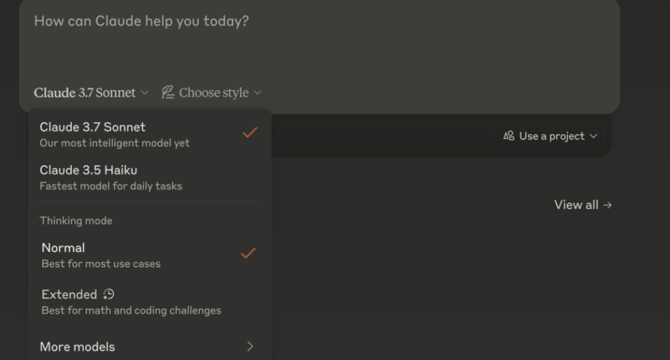Unite
1M
204

Image Credit: Unite
Claude 3.7 Sonnet is Anthropic’s AI Resurgence
- Anthropic has rolled out Claude 3.7 Sonnet, a significant upgrade to its large language model family, with improved speed, reasoning capabilities, and real-world task performance.
- Claude 3.7 Sonnet marks Anthropic's response to recent AI innovations, aiming to provide a unified system for quick answers and deep analytical thinking.
- The model has been well-received for its speed, output quality, and innovative reasoning capabilities, positioning Claude back in the AI race with enhanced performance.
- Its hybrid reasoning feature allows users to switch between quick answers and extended, visible thinking modes, offering a simplified user experience compared to competitors.
- Claude 3.7 Sonnet focuses on practical tasks and business applications, excelling in everyday problem-solving and front-end web development.
- Despite its strengths, the model may not excel in all academic benchmarks due to optimization for real-world tasks over math and computer science challenges.
- Extended Thinking mode in Claude 3.7 Sonnet, although powerful, introduces some complexity and users need to balance speed vs. thoroughness in queries.
- The model remains text-based, lacking multimodal functionalities like image recognition or voice input, emphasizing textual understanding and generation.
- By focusing on usability and reliability, Anthropic differentiates itself in the AI industry, emphasizing the unification of modes and practical applications.
- Overall, Claude 3.7 Sonnet represents a pivotal moment for Anthropic, showcasing the company's responsiveness to user needs while setting the stage for future advancements.
Read Full Article
12 Likes
For uninterrupted reading, download the app